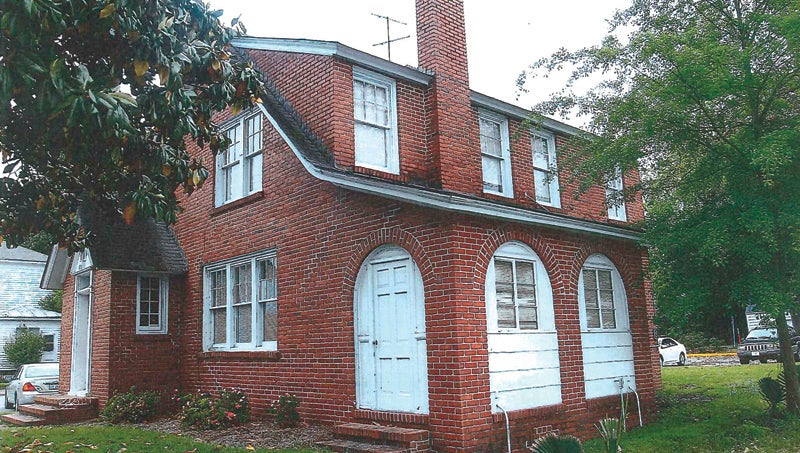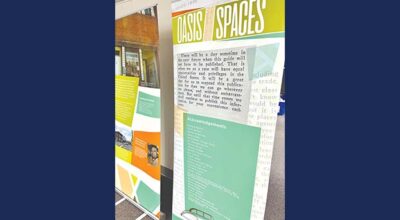Carter house demolition delayed; city to explore options to save structure
Published 7:15 pm Tuesday, April 10, 2018

- ON HOLD: The Washington City Council voted 4-1 to not issue a purchase order to pay for demolition of the Carter house during its meeting on Monday. (Daily News)
The Carter house next to Brown Library is safe from the wrecking ball, for now.
During its meeting Monday, the Washington City Council voted 4-1 for City Manager Bobby Roberson not to issue a purchase order to pay for demolishing the house and to work with Preservation North Carolina to explore options to save the house. That approach has been suggested by several people at council meetings in the past six months.
Council members Virginia Finnerty, Doug Mercer, William Pitt and Roland Wyman voted for Finnerty’s motion to delay demolition, with Councilman Richard Brooks voting against the delay.
John Wood, representing the Greenville office of the State Historic Preservation Office, and Maggie Gregg, with the eastern office of Preservation North Carolina, urged the city to consider working with Preservation North Carolina to explore ways to preserve the house (at 425 W. Second St.) built in the 1930s. One of those options is to allow Preservation North Carolina to market and sell the house on behalf of the city. Preservation North Carolina has a history of helping preserve historic structures by doing that. Revenue generated by the sale of the house would go to the city, which paid $80,000 for it several years ago.
On April 10, 2017, a 3-2 council vote started the 365-day clock toward demolition of the house on West Second Street, built by Henry Clay Carter III and his wife Marjorie in 1930. The city pursued the demolition option to pave the way for library expansion and additional parking.
Don Stroud, a historic district resident and president of the Washington Area Historic Foundation, once again urged the council to not do further damage to the historic district’s character by allowing the house to be demolished. He said there are options when it comes to saving the house. Robert Sands, CEO of the Pamlico Rose Institute for Sustainable Communities, said demolishing the Carter house would damage the historic district, which draws visitors to Washington, boostinge the city’s economy.
“I don’t think there is anybody in here that would disagree that the historic district is a very important part of the economic engine of Washington. Once you start to dismantle that historic district, you will start to dismantle the economic engine that drives us,” Sands said.
Several speakers who urged saving the Carter house also urged the city to protect the neighboring house at 411 W. Second St.






